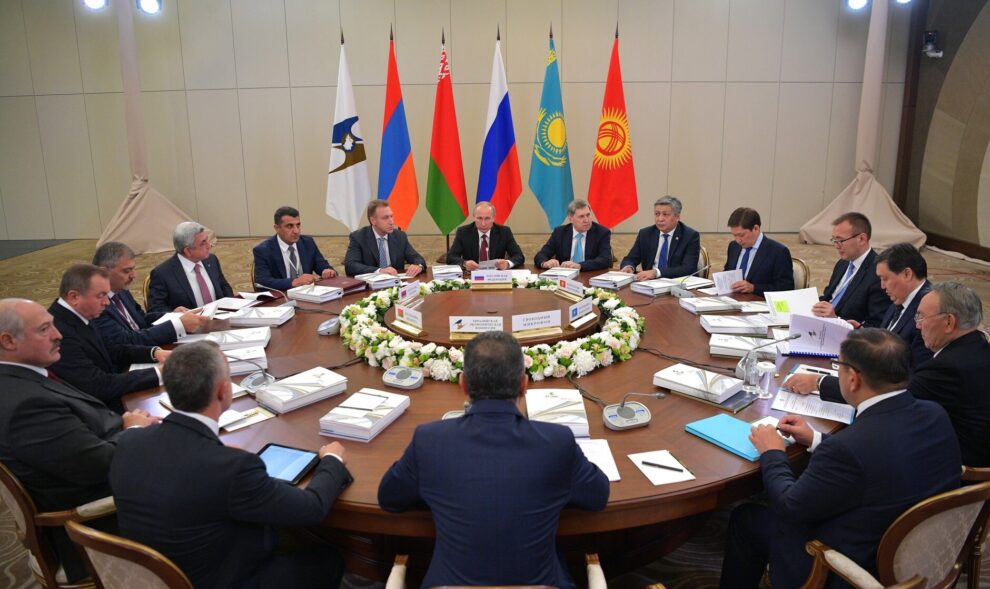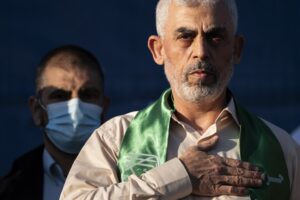The issue of liquefied gas shortage in the republic remained outside the scope of Rahmon’s visit to Moscow
For the President of Tajikistan Emomali Rahmon, 2023 was full of foreign trips. In March and September there were trips to New York to the water session of the UN conference, the 78th session of the UN General Assembly and the meeting of heads of state “Central Asia – USA”. In May – to Chinese Xi’an for the “One Belt, One Road” forum, in September – to Germany for the summit of leaders of Central Asian countries and Germany. In November – to Riyadh in Saudi Arabia for two extraordinary summits of the leaders of the countries of the League of Arab States and the Organization of Islamic Cooperation. And this is not counting meetings and visits to foreign countries, CIS countries and trips to regions of Tajikistan.
The travel burden is serious, especially since Emomali Rahmon has held the position of President since 1994 and can be re-elected an unlimited number of times. Perhaps the only great joy in the spring of 2023 was the purchase of a Boeing 787-8 Dreamliner with all the amenities from the President of Mexico for $92 million. Of course, it is indecent to count money in someone else’s pocket, especially since a private structure could pay for Boeing, and how it uses the plane is its business. After all, the plane can be rented out for money.
Emomali Rahmon recently met with Russian President Vladimir Putin in Bishkek on October 13 on the sidelines of the summit of the heads of the CIS countries. It was stated there that everything is going according to plan in relations between Moscow and Dushanbe. However, in mid-November 2023, Tajikistan suddenly faced a shortage of liquefied gas (see “NG” dated 11/16/23). The fact is that on November 15, 2023, Kazakhstan unexpectedly introduced a complete ban on the export of liquefied natural gas (LNG), and Tajikistan’s vehicles consume up to 75% of this fuel, which is imported mainly from Kazakhstan.
Kazakh President Kassym-Jomart Tokayev signed a “historic document” with Emomali Rahmon in May, in which the two countries pledged to “establish allied cooperation and refrain from any actions detrimental to the strategic partnership.” Probably, Kazakhstan could not inform its partner in advance about the suspension of gas supplies, so the increase in prices for refueling cars with gas in Tajikistan became a real nuisance. The same trouble as a significant depreciation of the somoni (the local currency), the threat of the return of hundreds of thousands of labor migrants to the republic, significant dollar interventions by the National Bank to save the economy and a fivefold excess of imports over exports.
According to business intelligence research company Rystad Energy, global LNG production will almost double in the 10 years to 2030, and countries are already racing to carve out a niche in this market. According to Rossiyskaya Gazeta, due to a number of reasons, the European pipeline gas market has been lost, and exports in 2023 will decrease by 90–120 billion cubic meters. m. But what about Tajikistan, where the price of LNG for refueling a car quickly increased from 6 to almost 8 somoni and which needed LNG yesterday?
After Kazakhstan’s refusal to supply gas, CIS partners could help Tajikistan, but this would require renegotiating contracts, sales volumes and logistics, since a lot of LNG produced at large plants is exported. More than 10 more LNG plants are in the design and construction stages. And small LNG production facilities, such as the plant recently built in the Rostov region using domestic equipment, were introduced with a short sales lead and are intended to supply gas to several small areas.
At the same time, experts also noticed a publication in the media about confirmation of compliance with the requirements of the Eurasian Union of three road checkpoints on the Tajik-Kyrgyz border – “Kairagach”, “Kara-Myk” and “Bor-Dobo”. This publication, along with Tajikistan’s problems with LNG, apparently indicated preparations for Tajikistan’s accession to the Eurasian Economic Union (EAEU). But since 2015, Tajikistan has refrained from taking this step, and opponents of this version assumed that China should give permission to join this regional association. Therefore, experts and journalists observing the situation suggested that in mid-November the opportune moment had come for Tajikistan to join the EAEU. Moreover, Yerevan asked to remove the document on assistance to Armenia from the agenda of the CSTO summit on November 23. The partners regarded Armenia’s refusal to participate in the summit of the military-political bloc as a weakening of the CSTO. And it remains to be seen what Prime Minister Nikol Pashinyan will do with membership in the Eurasian Union, with which Armenia does not have a common border.
However, during the meetings between Rahmon and Putin in Moscow on November 21, only conversations between the presidents took place in a narrow and expanded format, Emomali Rahmon was awarded a Russian order and the signing of several documents. There was no question about LNG in media reports, but in order to avoid a collapse, LNG supplies to the republic will most likely continue along the same routes, since the three mentioned border checkpoints are not intended for mass supplies of fuels and lubricants (fuels and lubricants). As for the situation of more than 1 million Tajik labor migrants, the parties have only touched upon this issue. They talked about the supply of textbooks to the republic, and about increasing quotas in universities for students in Tajikistan. Of course, it has long been known that joining the EAEU would have made it much easier for citizens of Tajikistan to work in five countries, but joining this integration association for this reason never took place.
Assessing the meeting, a Tajik expert, on condition of anonymity, said that labor migrants would be happy to have their problems resolved, that the capacity of the EAEU market is not yet an indicator of the success of the economy, and the agreement between the Academy of Sciences of Tajikistan and the Kurchatov Institute could have been signed at a lower level. The expert also noted that the public is often presented with the fact that documents have already been signed and that the phrase “based on the results of the meeting, it is planned to sign a package of documents” does not contain news. In addition, people often get tired of reading about a bright future and grandiose plans, so readers go to social networks.
We can agree with this conclusion, since it happens that it is difficult or even impossible to judge the effectiveness of meetings after the fact. And if someone needs to increase hope for a bright future, then this is also not news. If the previously signed documents had really contributed to economic growth, then the local currency would not have collapsed and prices for fuel and lubricants would not have risen.
Source: NG Ru















